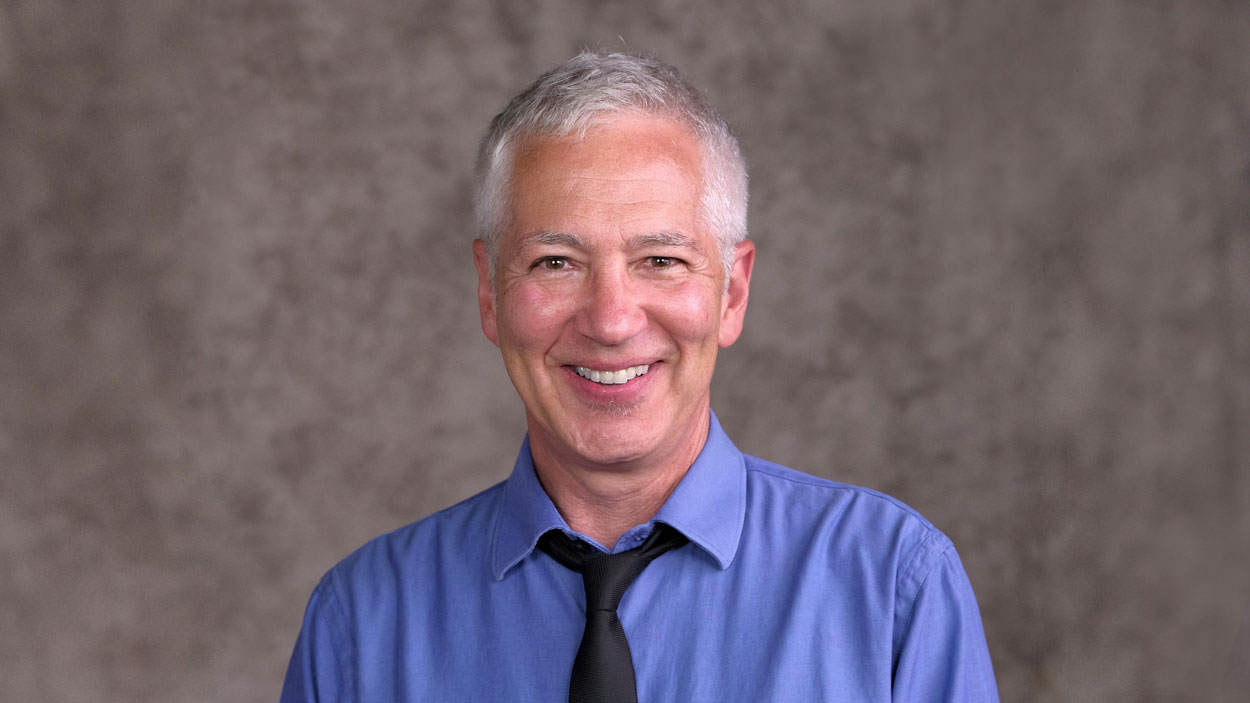
Richard Rosenfeld, a Curators’ Distinguished Professor Emeritus at the University of Missouri–St. Louis, was a national leader in the field of criminology and criminal justice, doing extensive research to better understand crime trends and the factors that influence them. He passed away Monday at the age of 75. (Photo by August Jennewein)
Richard Rosenfeld, a Curators’ Distinguished Professor Emeritus in the Department of Criminology and Criminal Justice at the University of Missouri–St. Louis, died Monday after battling cancer. He was 75.
Rosenfeld was a founding faculty member in the university’s renowned doctoral program in criminology and criminal justice and a national expert on crime trends and crime statistics. He often did research on behalf of government organizations, including the Department of Justice, and was frequently sought after by national and local news outlets for his insight.
In a distinguished career that spanned more than four decades, Rosenfeld was elected president of the American Society of Criminology for 2009-10 and later received the organization’s prestigious Edwin H. Sutherland Award, which honors senior scholars for careers’ worth of contributions to the field.
In 2020, Rosenfeld was named to the Council on Criminal Justice’s inaugural membership class, and a year later, Academic Influence named him one of the world’s five most influential criminologists.
“He was really a titan in the field,” said Professor Lee Slocum, a longtime colleague of Rosenfeld’s who joined the UMSL Department of Criminology and Criminal Justice in 2007. “Much of his work has been on crime trends. He published extensively in this area, most recently working with the U.S. Council on Criminal Justice to produce some of the only rigorous and timely reports on how crime is changing in major U.S. cities – really timely and useful information for policymakers, the media and the public.”
Criminology had not been Rosenfeld’s intended field when he began pursuing his PhD in sociology at the University of Oregon or even when he graduated with his doctorate in 1984, though the final chapter of his dissertation included a time series analysis of income equality and crime rates in the United States.
“I was interested in social inequality – income inequality, political inequalities and so forth,” Rosenfeld said in a 2017 interview. “I thought that unequal communities, unequal societies give rise to certain kinds of crime, and that’s a theme that’s persisted throughout my career.”
While still working on his PhD, Rosenfeld moved across the country to Troy, New York, and through a friend had the opportunity to teach a course in the higher education program at nearby Great Meadow Correctional Facility. Later, he would serve as the program’s academic administrator, and the interactions he had with offenders made him start to think more deeply about their circumstances.
After finishing his dissertation, he completed a postdoctoral research fellowship at the School of Urban and Public Affairs at Carnegie-Mellon University, where he studied changes in crime rates over time and the conditions associated with those changes.
Rosenfeld served three years as an assistant professor of sociology at Skidmore College before returning to his hometown of St. Louis to join the faculty at UMSL in 1989. He credited his colleagues with helping cultivate his career.
“One influence that encouraged all of us to work hard is we all have colleagues who we enjoy being around, and we all take pride in everyone’s achievements, individual achievements,” Rosenfeld said in 2017.
Among his colleagues was his wife of 23 years, Janet Lauritsen, herself a former president of the American Criminology Society and a national expert on victimization.
At UMSL, Rosenfeld gained national attention for his work, including as a theorist. His book, “Crime and the American Dream,” co-authored with his friend and longtime collaborator Steve Messner, outlined the institutional anomie theory, which looks at the role of social institutions, particularly the economy, in accounting for cross national differences in crime rates.
“This book is standard reading in criminology courses,” Slocum said. “It’s in all the textbooks. One thing to note is that Rick was really generous with his time. Anytime you asked him to come in and talk about his theory with students, he was always happy to do so. Many students at UMSL had a chance to learn about institutional anomie theory from the person who wrote it, which is really amazing.”
He authored 10 books, including the forthcoming “Crime Dynamics: Why Crime Rates Change Over Time,” due to be published later this year. He also wrote more than 100 articles in leading academic journals in criminology and criminal justice.
He remained active as a researcher and author well after his retirement as a full-time faculty member in 2014 and had recently been hoping to revive interest in crime forecasting.
During the COVID-19 pandemic, he began producing a series of reports on homicides and other crimes in some of America’s largest cities for the Council on Criminal Justice, working with UMSL doctoral candidates Ernesto Lopez and Bobby Boxerman on that project.
In 2023, the Council on Criminal Justice named him the chair of its Crime Trends Working Group.
Rosenfeld was diagnosed with metastatic cancer in October, and his health declined over the past two months. He died in hospice while surrounded by family members.
In addition to Lauritsen and his many colleagues, Rosenfeld is survived by sons Jake Hoffmann Rosenfeld and Sam Hoffmann Rosenfeld; daughters-in-law Erin McGaughey and Erica De Bruin; brother Robert Rosenfeld; and three grandchildren.
A visitation is planned from 4-7 p.m. Jan. 15 at Lupton Chapel at 7233 Delmar Blvd. in University City. A funeral will be held there at 11 a.m. on Jan. 16 with a private interment to follow.
Listen to Rosenfeld discuss his career origins and contributions, including his work around crime forecasting during a recent episode of The Criminology Academy podcast.
Media Coverage
St. Louis Post-Dispatch














